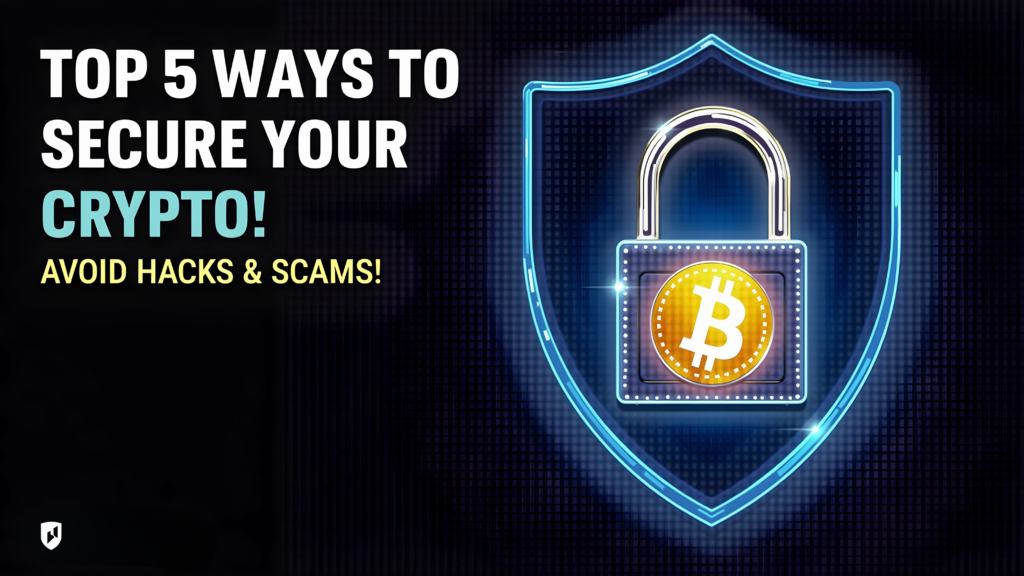How to Secure Cryptocurrency Safely: Best Practices for Securing Crypto Exchanges

After the Bybit exchange violation on February 21, 2025, the cryptocurrency industry was reminded of what may happen when bad actors exploit crypto platforms or supply line weaknesses. Hackers stole approximately $1.5 billion in ether (ETH), demonstrating their competence. State-sponsored actors like DPRK operatives are included.
2025 Crypto Crime Report shows an alarming trend: North Korean hackers stole $660.5 million in 20 cases in 2023. Theft increased 102.88% to $1.34 billion across 47 incidents in 2024. The Bybit attack stole more than DPRK hackers stole in the previous year. This indicates that the sector must improve security immediately.
Fortunately, there are several ways to stop these crimes. Crypto users can utilize free tools to secure transfers and off-chain activities. Crypto users can utilize publicly available GitHub scripts to display domains, messages, and Safe transaction hashes to compare them to Ledger hardware wallet data instantly.
This blog article will discuss the best strategies to protect digital assets, how to prevent large-scale hacks, and how to respond quickly to attacks.
Is Crypto Legal?
Before going into more detail about how safe crypto is, let us talk about how legal it is. You don’t want to put yourself at risk of being hacked or scammed, but you also don’t want to break any state or federal laws.
It’s not possible that crypto will ever be banned in the U.S. because it is a decentralized currency. At the moment, all 50 states allow people to buy and sell cryptocurrency. Still, the government can and does control how virtual currencies are exchanged and taxed.
How to Protect Crypto?
You must protect your digital assets, especially Bitcoin. You must act because, as we’ll discuss later, stolen crypto is hard to recover.
Here are some simple crypto security measures:
- Use 2FA on exchanges and wallets.
- Remove your cryptocurrency from the market and save it.
- Write your wallet seed words on paper. Store it securely.
- Never use weak passwords. (Check your password strength here.)
- Make sure your wallet password is unique from all others.
- Using a hardware wallet helps protect your coins.
- Avoid phishing and bogus apps. Be careful with cryptographic email files.
- No website should host your seed words.
- If you can’t avoid public Wi-Fi, use a VPN.
Cryptocurrency Exchange Signs and Avoidance
As shown, there are several ways to secure digital assets. The choice of a legal and trustworthy Bitcoin exchange is crucial. Traded cryptocurrency is bought and stored there. Several reliable and legal Bitcoin exchanges. Fortunately, many crypto companies are honest and legal. Two examples are Coinbase and Crypto.com and the other one is Kraken.
Since 2013, Kraken has protected cryptocurrency assets.
- Cold wallets: Kraken keeps 95% of its Bitcoin money in cold wallets to avoid hackers.
- Server safety: Kraken servers are caged and monitored by security cameras and guards 24/7. According to Kraken, server access is strictly controlled, but they won’t specify where.
- 2FA: Two-factor authentication (2FA) prevents unwanted access to accounts.
- Bug bounty program and penetration tests: Kraken hires security professionals to find ways to break into the platform’s security so vulnerabilities can be uncovered and addressed before the bad guys do.
Secure Use of Cryptocurrency Wallets
The procedures above can help prevent exchange attacks, but the exchange owns your crypto, thus you are not in control. This is where crypto wallets help.
What Is a Crypto Wallet?
Crypto wallets are like genuine wallets for storing coins. Just like cryptocurrency, crypto wallets are digital. The app lets you prove you hold a cryptocurrency account or address. A wallet protects your Bitcoin or lets workers or merchants receive it. JME3HP2G
Wallets are on your device, not an exchange, thus only an attack can remove crypto. Computers can be hacked, but exchanges are better targets. This implies a hidden wallet is the best approach to secure your crypto.
Using a Hot Wallet
Hot wallets must be downloaded from the official website and set up to store cryptocurrency.
Setting Up
A list of seed words appears as the app starts. These seed words create crypto accounts and names. Write these words in the order given. Photograph these words instead of saving them on Google Drive or Dropbox.
Don’t let water, fire, or other harm your physical copy. Store it securely. It shouldn’t be visible unless you want people to find your key.
Passwords
After recording seed words, the app will request a password. Use a strong password using numbers, letters (capital and small), and special characters.
Seed words can unlock your account if you forget your password. Don’t worry about forgetting. Remember to keep your seed words on paper.
Addresses
Your Bitcoin address will appear. This long string of characters comes from your seed words. Your exchange will require this string of characters to return your crypto. Copy and paste the address instead of typing it. You can’t lose crypto if you miss or modify one letter when sending.
After your coin is safely transmitted to your wallet, the exchange cannot control it. Even if someone gets into your exchange account, they can’t steal your crypto.
Using a Cold Wallet
Using hot wallets properly can be safe. Your device can still be hacked with keylogger software. A cold wallet can also protect you this way.
The appropriate cold wallet use should prevent hacking until someone steals it.
Hardware Wallets
A hardware wallet is the most common cold wallet. Hardware wallets are compact USB drives with keystore files. Hardware wallets can be connected to computers or phones via USB and signed to trade.
However, the key vault is stored on a distinct memory bank and cannot be transferred via USB without encryption. Even with malware on your PC, an attacker shouldn’t be able to access your crypto.
Hardware wallets are most vulnerable to theft. Hardware wallets feature PIN code locks to prevent this.
Paper Wallets
A paper wallet is cold too. Paper wallets store your private key and address. As no computer stores the key, thieves shouldn’t be able to steal it. Many early Bitcoiners stored their currency in paper wallets.
This method had one major security flaw: you had to install an app in your browser to make the key and address. It was unclear if the program sent your keys to the web server, which would have exposed your account.
Conclusion
Securing cryptocurrency requires vigilance, strong security measures, and reliable platforms. Use 2FA, and hardware wallets, and avoid phishing scams. Choose reputable exchanges like Kraken and store assets safely. Cold wallets provide extra protection. As cyber threats grow, staying informed and proactive is crucial to safeguarding digital wealth from hackers and bad actors.

